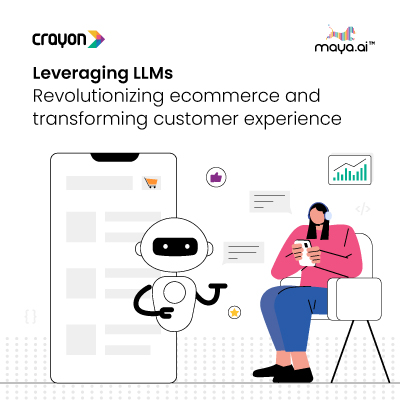Relationships have become a significant factor for success in any venture and knowing how to cultivate it is what separates the truly successful from those who are not.
Cultivating a relationship with website users
Before the emergence of the internet, which led to the creation of websites, individuals related with themselves, and brands physically. Developing fruitful relationships was not difficult because of the physical presence and the ability to connect on an emotional level.
All that changed when the internet became the next big thing, and individuals and brands started building websites to connect with more people beyond their sphere. It took away the physical element of the relationships, with things going virtual.
The challenge became how to cultivate relationships with users on websites to create a bond that translates to trust, loyalty, and in the case of brands, sales.
4 simple tactics to cultivate relationships
The answer is not as complicated as it may appear, and these four tactics will help you easily cultivate a relationship with users on your website.
#1 Find out what your users want
The biggest mistake any human being can make is assuming to know what’s in the mind of another person. Even if you figure it out, it can change in the next moment, or say, a month. The fact remains that human wants are constantly changing depending on several economic, environmental, and social factors.
Hence, it would be wrong to assume that you have accurate knowledge of what your users want. To this end, always make an effort to find out what they want and deliver it to them. A sure way to achieve this is by carrying out surveys. These surveys can be done monthly, bi-monthly, or quarterly, depending on what suits you and your users.
The surveys should be targeted towards a particular area, and the simplest way to carry out a study is by preparing a questionnaire. The latter should not be too lengthy; it should be direct and provide more than boxes to tick true or false, or select options. It should give room for your users to air their views. Doing this shows that you are genuinely interested in what they have to say, and valuing their opinions is one of the best ways to cultivate relationships with users on your website.
Note that if your website is an e-commerce site, or offers other types of services, you shouldn’t try to get your users to patronize you while carrying out a survey. Stick to what it’s meant for, and as a plus, provide them with valuable information while at it.
#2 Give your users credible information and updated content
With access to an endless stream of data on the internet, it’s easy to plagiarize content without giving credit to the authors. Flip that, and you’ll see it’s equally simple for your users to discover if the information you are giving to them on your website is credible.
To cultivate relationships with users on your website, give, and make available to them, credible information. If an article on your website blog has statistics, ensure they are from a trustworthy authority. Don’t create situations that will leave your users wondering if they can trust information gotten from your site.
Second-guessing you will lead to a lack of trust, and without trust, there can be no loyalty, and without the two, you can’t hope to have a relationship of any kind with your users.
Don’t stop at providing credible information, take a step further to ensure that the content you put on your website is updated. If the business of your website is in the tech field, update it regularly with the latest inventions in technology. If your site is the last to give updates, your users will abandon it and go to another that is more proactive.
A frequently updated site gives value to the users and shows you are interested in cultivating a relationship with them. Also, your static pages, that is your “Services,” and “About” pages should be renewed and kept up to date. Don’t mislead your users into thinking you still offer a defunct service; it won’t bode well for your relationship.
#3 Offer social proof and prioritize security
One disadvantage of the internet is that it’s the most accessible means for people to get scammed and fall into the hands of fraudsters. With so many bogus websites with poor security, users are wary of giving out information that will lead them into the hands of fraudsters.
Thus, you must show users that your website is trustworthy and reliable. Without it, you won’t be able to cultivate a relationship with users on your website. To prevent this from happening, offer social proof, and prioritize security.
Testimonials, reviews, and profiles of those your website are excellent examples of social proof. Note that some bogus sites have social proof, so figure out how to best convince your users of your genuineness.
In prioritizing security, keep your software updated and inform your users about those updates. Always search for malware, and fix any if found, immediately. The assurance of a safe and secure environment helps to build a relationship with users. One that thrives on trust.
#4 Make the website easy to navigate
These four tactics and everything discussed above will be irrelevant if your website is not easy to navigate. Your site shouldn’t be understandable only to you. Also, if your homepage does not scream at first glance, “ease-of-use,” then you can be sure no one will venture beyond it.
To cultivate relationships with users on your website, you have to ensure they can easily and quickly find what they’re looking for. It sends the message that you had them in mind when you designed the website. And you value the time they are spending on your site.
Make every button self-explanatory. Use straight forward menus and navigation. And ensure what lies beyond the click of a button is what the user read on the list. These are just some of the basics but you can also consult user experience agencies for more pointers. If you have these, then you’re ready to cultivate a relationship with users on your website.
Start cultivating relationships
As mentioned earlier, the relationship with your customer is the bedrock of most successful ventures. Both for a website and business. What will keep you long-term is how well you relate with your users. So, prioritize their needs over yours. Offer them value for their time, and always take an honest and straightforward approach.








![60 stats & trends that will define the future of eCommerce [Infographic]](https://crayondata.ai/wp-content/uploads/2022/05/eCom-374x288-1.png)
